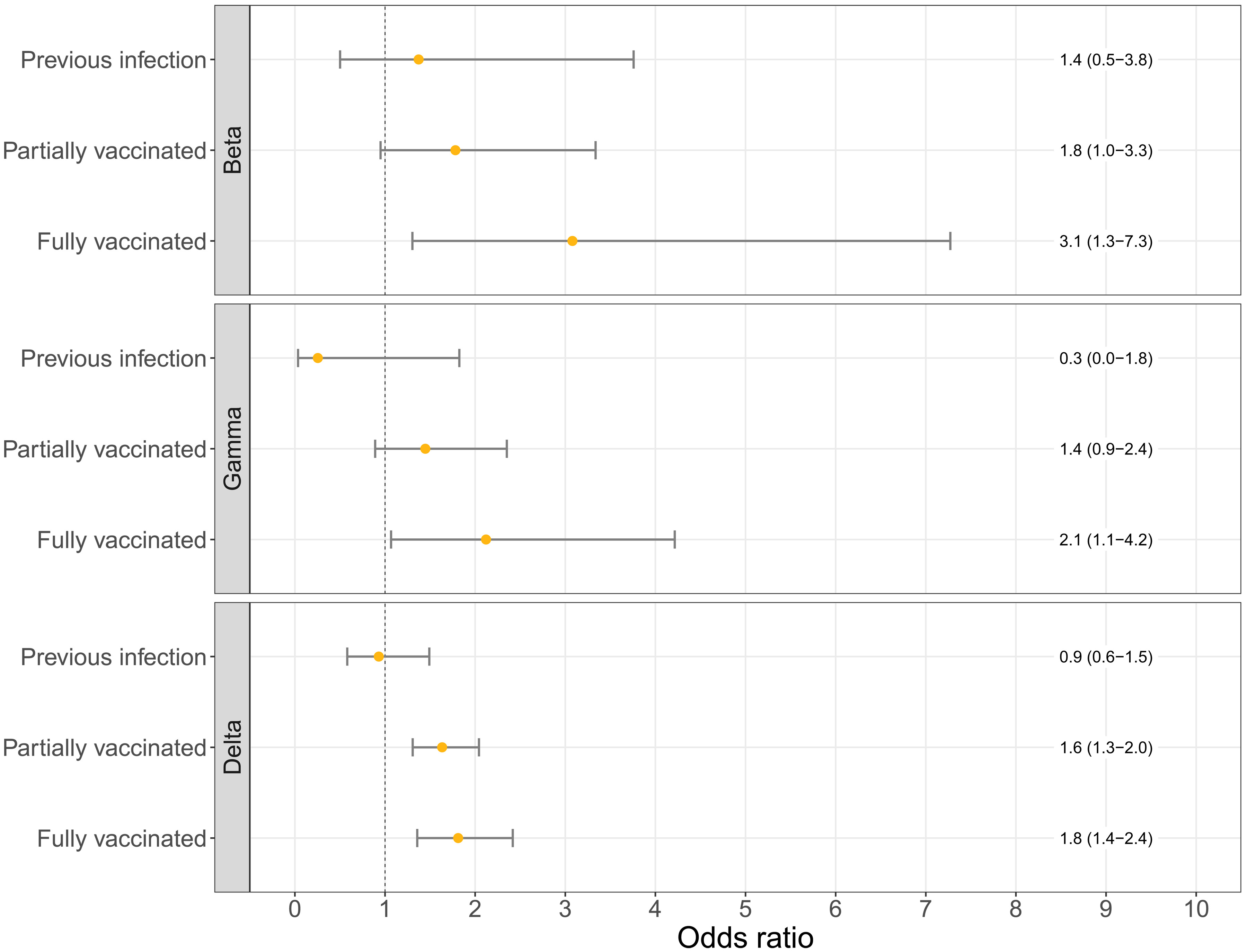"The extent to which severe acute respiratory syndrome coronavirus 2 (SARS-CoV-2) variants of concern (VOCs) break through infection- or vaccine-induced immunity is not well understood. We analyzed 28,578 sequenced SARS-CoV-2 samples from individuals with known immune status obtained through national community testing in the Netherlands from March to August 2021. We found evidence of an increased risk of infection by the Beta (B.1.351), Gamma (P.1), or Delta (B.1.617.2) variants compared with the Alpha (B.1.1.7) variant after vaccination. No clear differences were found between vaccines. However, the effect was larger in the first 14 to 59 days after complete vaccination compared with ≥60 days. In contrast to vaccine-induced immunity, there was no increased risk for reinfection with Beta, Gamma, or Delta variants relative to the Alpha variant in individuals with infection-induced immunity...
Results
Logistic regression analysis showed that full vaccination was significantly associated with infection by the Beta, Gamma, or Delta variants compared with the Alpha variant {adjusted odds ratio (OR): 3.1 [95% confidence interval (CI): 1.3 to 7.3], 2.1 (95% CI: 1.1 to 4.2), and 1.8 (95% CI: 1.4 to 2.4), respectively; Fig. 2}. The association for partial vaccination was less strong and not significant for Beta and Gamma but was significant for Delta when compared with Alpha [adjusted OR: 1.6 (95% CI: 1.3 to 2.0); Fig. 2]. We did not find a significant association between previous infection and the Beta, Gamma, or Delta variant over Alpha [adjusted OR: 1.4 (95% CI: 0.5 to 3.8), 0.3 (95% CI: 0.0 to 1.8), and 0.9 (95% CI: 0.6 to 1.5), respectively."
Fig. 2. ORs of the logistic regression models for the association between immune status and VOC (Beta, Gamma, or Delta over the Alpha variant)

Copyright © 2023 The Authors, some rights reserved; exclusive licensee American Association for the Advancement of Science.
Distributed under a Creative Commons Attribution License 4.0 (CC BY).
